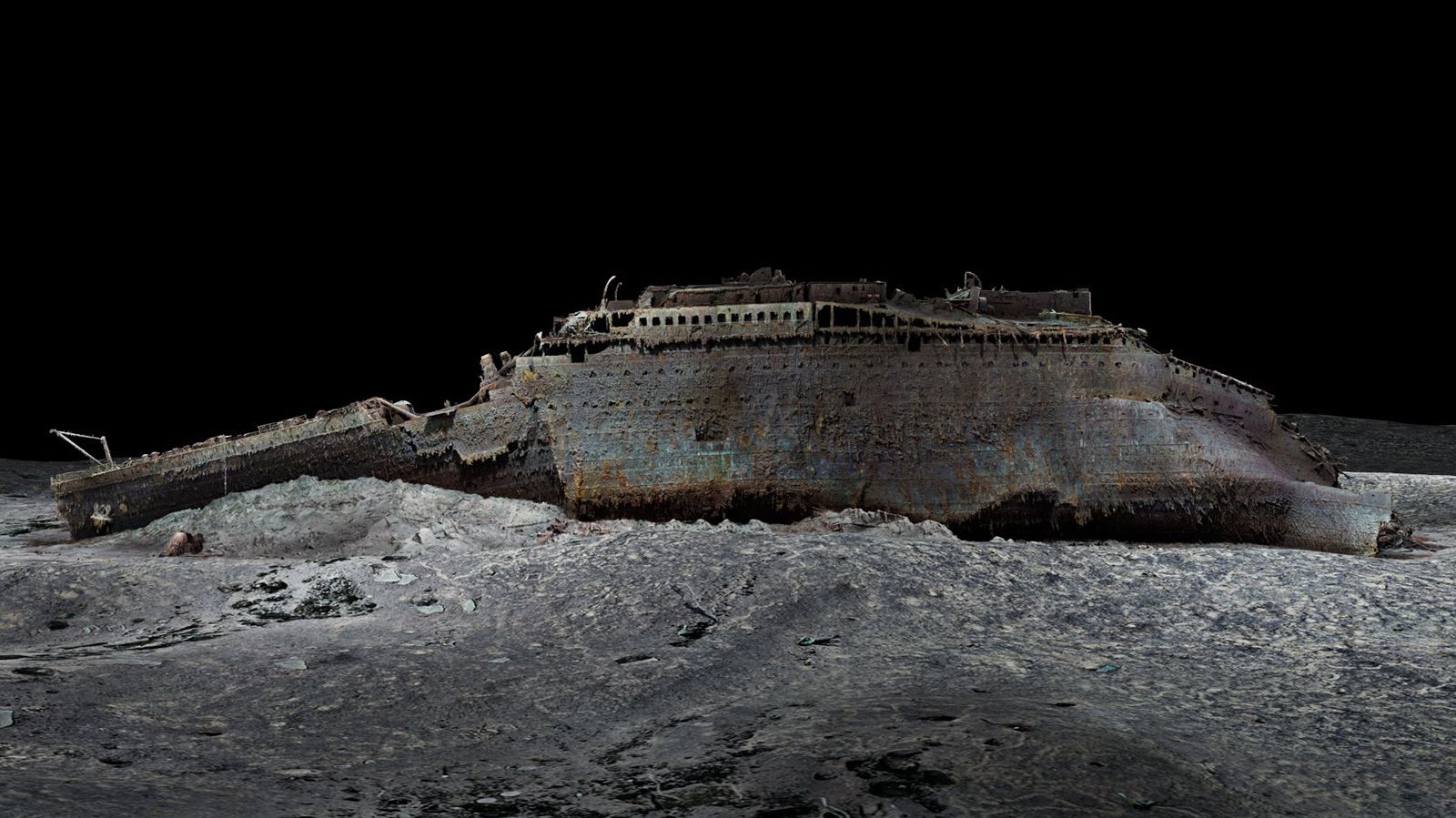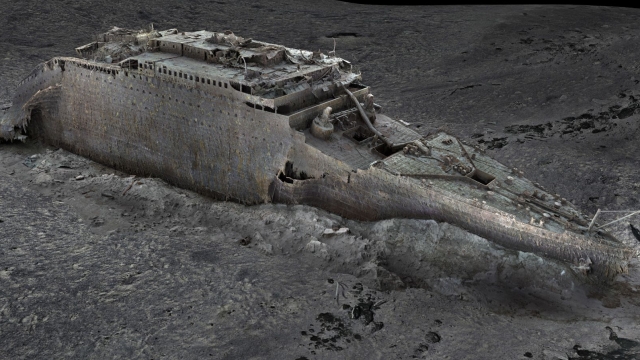For the first time, we can fully picture what the world's most famous shipwreck looks like at the bottom of the Atlantic.
Using deep-sea mapping, researchers were able to create the first full-sized, 3D digital scan of the R.M.S. Titanic, resting 12,500 feet down in the ocean.
The "digital twin" shows the ship's exact current condition with details never seen before, including the ship's bow and stern, which separated from the ship upon sinking.

The expedition was carried out over a six-week period in the summer of 2022 by Magellan Ltd., a deep water mapping company, and Atlantic Productions, which is also working on a documentary about the project.
The goal was to shed new light on exactly how the wreck happened and how the ship broke apart when sinking.
The British passenger liner was on its maiden voyage when it struck an iceberg on April 14, 1912, and went down, killing more than 1,500 people.
Although there have been images of the wreck since it was discovered in 1985 — including some footage used in the 1997 blockbuster film "Titanic" — cameras had only been able to produce snapshots of the wreckage, due to murky water and low light.
The new scan captured the ship's entirety using technology Magellan developed for more than five years.

Researchers remotely controlled two submersibles nicknamed Romeo and Juliet from a ship. Those two analyzed the entire three-mile-wide debris field, including the bow and stern which are more than 2,600 feet apart.
Over the course of more than 200 hours, the team took more than 715,000 photos, which then were stitched together to create the digital replica.
Not only did the project capture the size of the ship, it also uncovered never-before-seen details: a serial number on a propeller, unopened champagne bottles and endless personal artifacts.
"In accordance with tight regulations in place the wreck was not touched or disturbed, and the entire site treated with the utmost of respect, which included a flower laying ceremony in memory of those who lost their lives," Atlantic Productions said in a statement.
Now the scan may serve as a historical memory frozen in time, as the shipwreck continues to deteriorate under the ocean's conditions.
SEE MORE: Endurance Ship Found 'Intact' After Sinking 107 Years Ago
Trending stories at Scrippsnews.com



